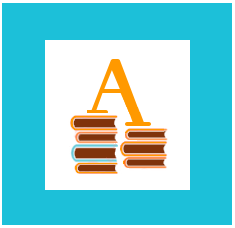Aruba has enjoyed a steady growth of children’s books in recent years. A great development, if one considers the importance of cultural heritage and the promotion of reading among children. But is it all gold that is glistering beneath the sun? “Unfortunately not”, say youth librarian Olivia Figaroa and children’s authors Olga Buckley, Munye Oduber and Desiree Correa.
 |
| Book from Olga Bukley's Bencho series |
The two main producers of children’s books in Aruba, publisher Charuba and cultural fund Unoca, do not employ editors to assist authors. Their role in the publication process is usually limited to the financing of the printing costs. Upon request, they may refer authors to external editors. But they only do so on rare occasions, and really only if the author himself specifically asks for this.
Yet, Aruba does possess the required editorial expertise. Desiree Correa, youth author and teacher, has been offering courses and workshops in Creative Writing for years. “But people must also want to learn”, says Munye Oduber, another author.
 |
| Participants in the Good night, Sleep tight reading project |
Aruban primary schools play an undecided role in the promotion of reading. They want children to read, but not in Papiamento, the native Aruban language. Instead, teachers favor Dutch. This is not particularly strange, since primary schools in Aruba must prepare their students for secondary level and beyond, where classes demand a thorough appreciation of Dutch. “It is different in kindergarten and schools for special education”, says librarian Figaroa. “In those sectors teachers do pay much attention to literature in Papiamento.”
Desiree Correa predicts that, despite the stance of the education system, the demand for Papiamento children’s books will continue to rise in the future. It’s only logical, she reasons, because Papiamento is the language in which the children explore their world. It is the language of their experiences and emotions. Correa sees parents slowly starting to appreciate the value of Aruban literature. More and more fathers and mothers are asking for books for their children. Books in the Aruban language, about Aruban subjects, that is.
The stream of Papiamento children’s books that has flooded the market in recent years does not exclusively consist of works that are produced locally. A considerable number are translated books, such as the popular youth series Kikker (‘Frog’) of Dutch author Max Velthuis. These are ‘wonderful books,’ the experts say. The characters, the story lines and images in the Kikker-series also appeal to Aruban children. But, so they argue, that does not diminish the value of Aruba’s own literature.
 |
| E bolo di chuculati by Pilar Ramos, illustrated by Rosa Aragó, has been translated from Portuguese to Papiamento by Marlon van der Linde |
“Children love stories in Papiamento”, says Buckley. “I notice this during the children’s books festival, the school visits I attend and the reading project Good night. But they also enjoy recognizing themselves and their environment in the characters and settings of a book. This is precisely why we need to carry forth more quality work of our own”, so the author says.
Most Aruban authors are self-taught. They have educated themselves in the art of the trade. A writer’s school does not exist on the island. And courses have only just begun to emerge. Munye Oduber comments that ‘plenty of reading’ is probably the best education a writer can give himself. “Through reading a lot, you develop an eye and a sense for stories and sentence structure. But listening to stories also does help. I grew up in a time when television did not exist yet. Much of what I now know about the art of story-telling, I learned on the porch at my parents’ house. My mother and grandmother used to tell us stories every night. Or they had us participate in word games. Aside from that, as a child I read everything that I could get my hands on, and started writing my own stories as of a young age,” says Oduber. She continues with the remark that many people who claim to be writers, fail as readers. She marks it as a possible cause for the limited quality of some publications in Aruba. “A person who does not read himself, lacks the tools to improve his own work”, she says.
About the Author
Anouska Kock, a Caribbean writer of Surinamese-Dutch descent, is a freelance journalist and editorial consultant. She is also the founder and moderator of Caribbean Literary Salon and currently lives in Aruba.














0 comments:
Post a Comment